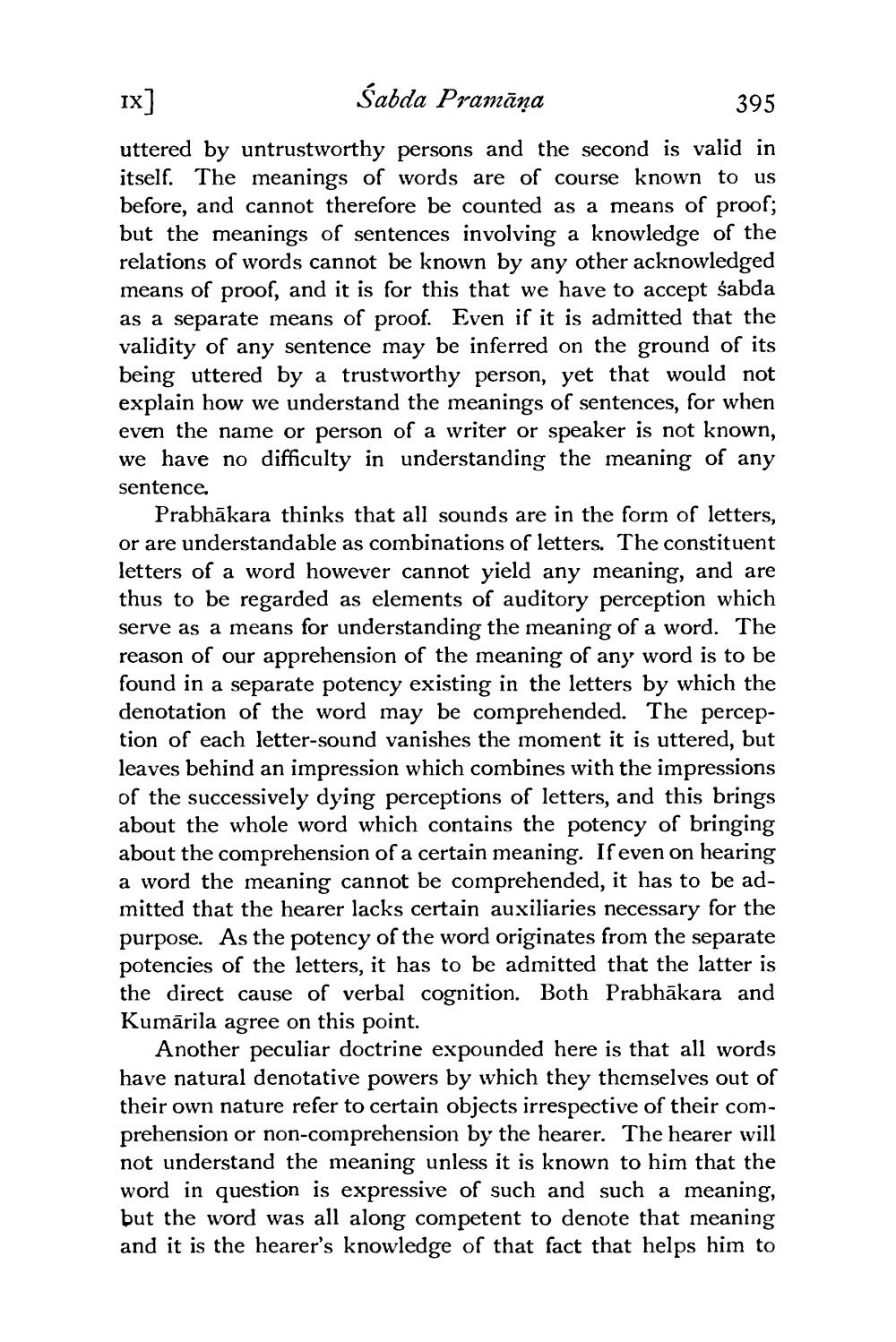________________
IX]
Sabda Pramāna
395
uttered by untrustworthy persons and the second is valid in
elf. The meanings of words are of course known to us before, and cannot therefore be counted as a means of proof; but the meanings of sentences involving a knowledge of the relations of words cannot be known by any other acknowledged means of proof, and it is for this that we have to accept sabda as a separate means of proof. Even if it is admitted that the validity of any sentence may be inferred on the ground of its being uttered by a trustworthy person, yet that would not explain how we understand the meanings of sentences, for when even the name or person of a writer or speaker is not known, we have no difficulty in understanding the meaning of any sentence.
Prabhākara thinks that all sounds are in the form of letters, or are understandable as combinations of letters. The constituent letters of a word however cannot yield any meaning, and are thus to be regarded as elements of auditory perception which serve as a means for understanding the meaning of a word. The reason of our apprehension of the meaning of any word is to be found in a separate potency existing in the letters by which the denotation of the word may be comprehended. The perception of each letter-sound vanishes the moment it is uttered, but leaves behind an impression which combines with the impressions of the successively dying perceptions of letters, and this brings about the whole word which contains the potency of bringing about the comprehension of a certain meaning. If even on hearing a word the meaning cannot be comprehended, it has to be admitted that the hearer lacks certain auxiliaries necessary for the purpose. As the potency of the word originates from the separate potencies of the letters, it has to be admitted that the latter is the direct cause of verbal cognition. Both Prabhākara and Kumārila agree on this point.
Another peculiar doctrine expounded here is that all words have natural denotative powers by which they themselves out of their own nature refer to certain objects irrespective of their comprehension or non-comprehension by the hearer. The hearer will not understand the meaning unless it is known to him that the word in question is expressive of such and such a meaning, but the word was all along competent to denote that meaning and it is the hearer's knowledge of that fact that helps him to




